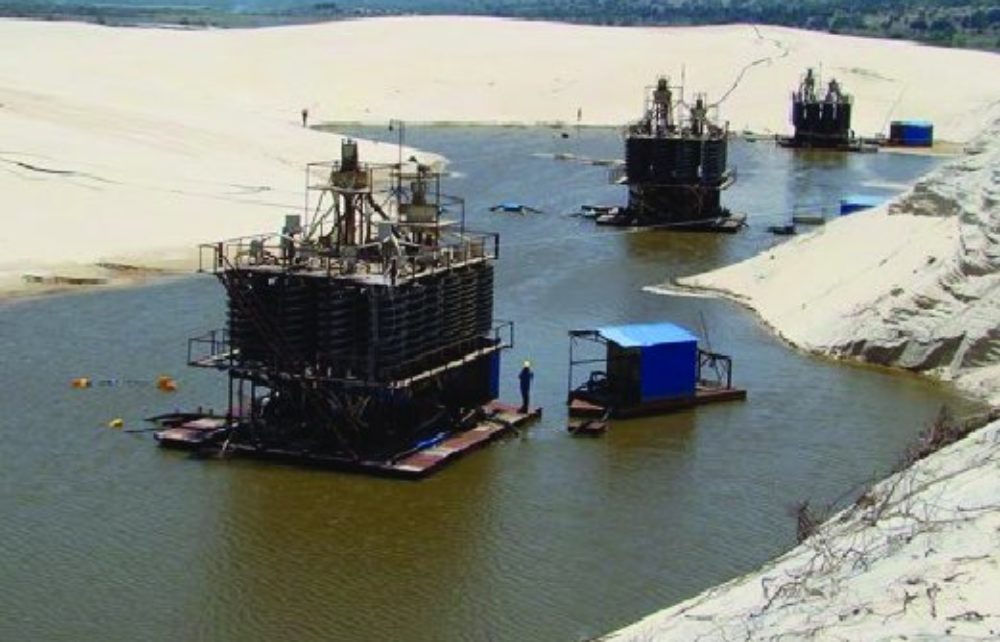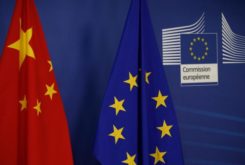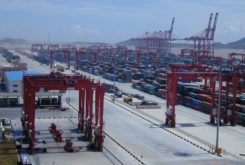With Dingsheng Minerals’ heavy sands mining project in Mozambique one year underway, a new project, led by an Australian company, is adding to exploration in the African country’s Gaza and Inhambane provinces.
Australian based MRG Metals announced at the end of last year the confirmation of high grade minerals deposits in its concessions in an area known as Corridor Sands.
MRG Metals now holds 1000 square kilometres – 100,000 hectares – in the area and, according to researcher Joseph Hanlon, mapping suggest that MRM will want to dredge the entire dune barrier separating Lake Quissico from the sea.
The concessions are in the name of Sofala Mining, recently taken over by MRG Metals and “initial profits come from selling on licences and MRM areas have changed hands five times, and might be sold on again to one of the larger mining companies”, Hanlon adds.
The entire 300 km coast from south of Xai Xai to Inhambane city is allocated for heavy sands exploration and mining, which involves huge dredges digging up the sand dunes along the coast.
“Heavy sands” have titanium (mainly used for white paint) as well as smaller amounts of limonite, rutile and zircon (also used in white colouring and in foundry and industrial applications).
Heavy sands in Gaza and Inhambane are found in three strips: very close to the present coast, in an ancient coastline and dunes about 60 km inland, and in various old dunes in between.
The first project in this zone to go into production is Corridor Sands, 10,500 ha just north of Chibuto and the Limpopo River, a mine run by Dingsheng Minerals, which is 85% owned by China’s Anhui Foreign Economic Construction Group and 15% by the Mozambican state mining company (Empresa Mocambicana de Exploracao Mineira, EMEM).
It has been producing for more than year and mineral concentrate is trucked to Maputo port, according to Hanlon.




